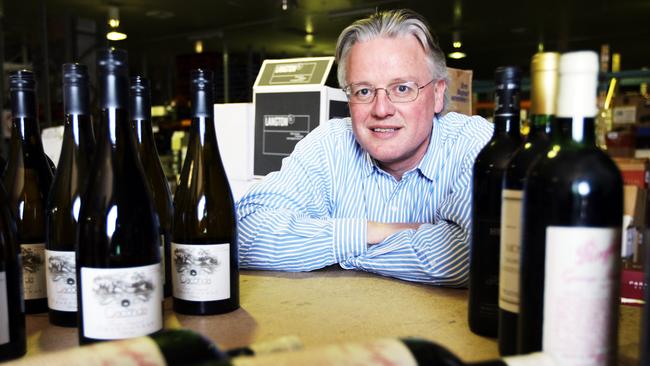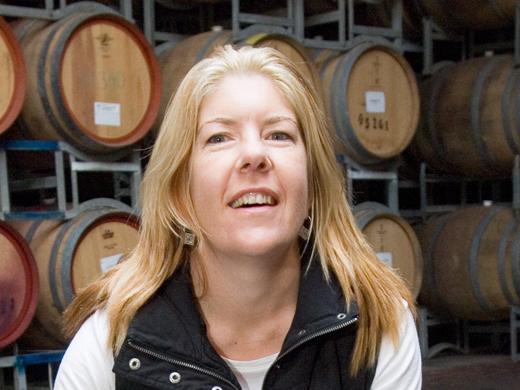How to be a wine expert: Adam Cotterell, Alex Russell, Sam Connew and others explain how
Wine is like life. To appreciate it, you need to pay attention, challenge yourself, try new experiences and stay hydrated.

Here’s a great trick I learned early on in my wine career: just close your eyes.
The next time you stick your nose into a wine glass, or take a sip of something you’ve never tasted before, let those eyelids fall and concentrate on your other senses: think about the aroma molecules jostling for attention in your nostrils; pay attention to the flavour molecules tumbling around on your tongue.
I’m not the only one who swears by this little tip. For this story, I picked the brains of leading wine scientists, winemakers, sommeliers, wine show judges, merchants and the odd Master of Wine to see what wine tasting wisdom I could glean. And almost all of them advised the eye-closing technique — among plenty of other tips.
Their advice will hopefully make the everyday act of knocking back a glass or two of vino a little more rewarding. It might even make you a better person: quite a lot of these tasting tips sounded like a self-help manual: pay attention; challenge yourself to try new experiences; drink lots of water ...
Close your eyes. Adam Cotterell is manager at Melbourne’s City Wine Shop and 2015 dux of the Len Evans Tutorial, an elite wine judge training program. “You need to slip into a certain mindset,” says Cotterell. “For a few moments, just block everything out and concentrate on what’s in the glass. It’s a bit anti-social — but in the best possible way, and only for a moment.”
Sommelier Banjo Harris Plane, co-owner of new Melbourne wine bar, Bar Liberty, agrees: “I always close my eyes when I taste, so I can concentrate on what’s going on in the glass; it really crystallises my impression of what I’m drinking.”
Play with your wine. Dr Alex Russell completed his PhD in the School of Psychology at the University of Sydney studying taste and wine perception. He is a big believer in playing with your wine to learn how to identify smells.
“Adding your own flavours to wine can be a fun thing to do,” he says. “As in: literally putting fruits and vegetables and herbs into the glass. Ann Noble, the Californian wine professor who invented the Aroma Wheel (a diagrammatic representation of wine flavours) did it: she put capsicum in sauvignon blanc to demonstrate how that variety sometimes smells of peppers.”
Try it: drop some lime into your riesling, some Ribena in your cabernet, peach in your chardonnay ...

Play with your food. “I actually think what adds most to my wine tasting ability is eating,” says Sam Connew, maker of Stargazer Wines in Tasmania and chair of judges at the Sydney Wine Show. “I go out of my way to try lots of new ingredients and styles of cooking, because it builds up a flavour library in your memory — a catalogue of smells and tastes in your head you can flip through and refer to when you’re tasting wine.”
Play the field. Harris Plane also urges wine drinkers to experiment: “I always like to order wine I haven’t tried before,” he says. “Just as I order new dishes, try new fruit and veg, travel to places I haven’t been before. That’s how you learn.”
Stay hydrated. “Drink lots of water,” says Russell. “Keep hydrated, especially if you’re trying lots of wines at a cellar door or somewhere. The aroma molecules in the wine need to dissolve in mucus in the nose to be ‘read’ by your olfactory system.”
Good glasses are your friends. “Get some decent glasses,” advises Con Simos, who runs the Advanced Wine Assessment Course at the Australian Wine Research Institute in Adealaide. “The bigger the wine glass the more surface area there is for the wine to swirl around, which means when you really take a big whiff it’s a more pleasant experience.”

But don’t keep your glasses locked up, says Sydney based Master of Wine, Andrew Caillard. “Good glasses are really important,” he says. “If the glass feels good in your hand, and shows off all the wine’s glinting colours, it makes the whole experience feel terrific. But if that glass smells of the musty old box or wooden cupboard it’s been stored in, no matter what wine you’re drinking, it’ll be ruined.”
Compare and contrast. “One of biggest tips for beginners is to taste different wines side by side,” says Russell. “If you taste one wine on Friday, by the time you taste another wine on Saturday the memory of the first will have faded. It’s better to have them both open at the same time (maybe invite some friends around, or take advantage of a wine preservation aid).
Start with wines that are massively different — a chardonnay and a sauvignon blanc, for example — and really focus on what makes them different. Then, compare differences between, say, a Marlborough sav blanc and an Adelaide Hills sav blanc.”
It’s a social thing. “The most enjoyable aspect of wine tasting is that you do it with other people,” says Connew. “It’s really important to have conversations about what you’re tasting — to ask each other: what do you think about this?”
Simos agrees: “It’s always good to get like-minded people together to compare notes, to develop confidence in talking about wine. It’s really important to learn that we’re all different, we all have different sensitivities to aromas and flavours.”
Know thyself. As associate professor in sensory studies at the University of Adelaide, Sue Bastian knows all about the role of personal preference in wine tasting. “Our sense of smell is strongly linked to memory,” she says. “People will often smell something and a moment from their childhood comes flooding back. So a smell that might resonate with you might not engage someone else.”
Each of us has different thresholds of taste perception, she says: what might seem aggressively bitter to you might be deliciously smooth to me. “You can understand your own personal palate if you pay attention as you’re tasting — not just to what you’re experiencing but what other people are experiencing, too.”
If at first... Even if you follow all this advice, you won’t become a crack wine taster overnight. It takes practice ... which means, of course, tasting as many different wines as you can, as frequently as possible. “Developing your tasting abilities gives you so much more pleasure out of wine — it’s as simple as that,” says Andrew Caillard. “But, as for anything meaningful, effort is needed ...”
Adam Cotterell knows that the effort pays off. “Eventually, after tasting and tasting, there’ll be a Eureka moment, when you really nail something in a wine — you’ll identify where it’s from, or recognise a distinctive flavour — and that moment will give you enormous confidence.”

To join the conversation, please log in. Don't have an account? Register
Join the conversation, you are commenting as Logout